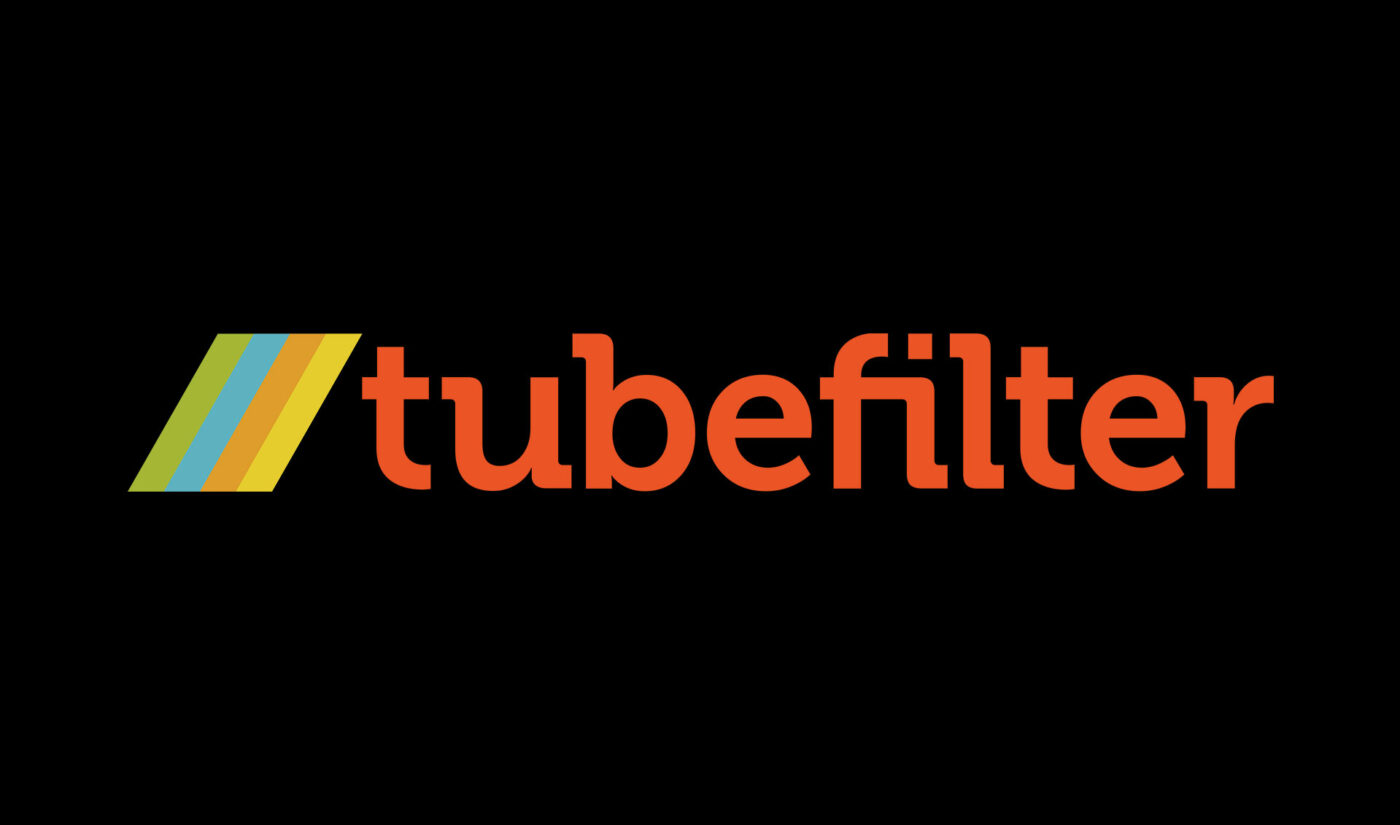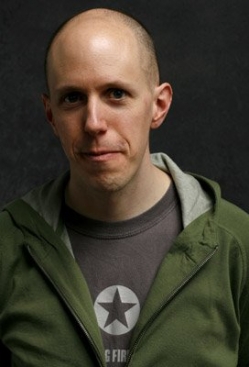 John August’s screenwriting credits go on and on: Big Fish, Corpse Bride, and Charlie and the Chocolate Factory are just a few. His first feature as a director, The Nines, was made in 2007. Now he’s joined the ranks of web series creators.
John August’s screenwriting credits go on and on: Big Fish, Corpse Bride, and Charlie and the Chocolate Factory are just a few. His first feature as a director, The Nines, was made in 2007. Now he’s joined the ranks of web series creators.
August’s The Remnants, shot during the writer’s strike, caused a stir when it was posted to Vimeo a few weeks ago. Clips of the show had been previously uploaded, whetting our appetites for more of this mysterious apocalyptic comedy. But we’ll have to keep on pining, at least for the foreseeable future, since The Remnants hasn’t acquired the sponsorship necessary to bring it to the web as a full series.

Subscribe to get the latest creator news
August recently wrote about The Remnants on his blog, sharing details and specifics you don’t often get to see. I asked him to elaborate on his analysis of the experience for Tubefilter.
Tubefilter: You said that a lot of agencies refused to send their actors out because “The Remnants” was a web series. Can you talk about that?
John August: When you’re casting a traditional TV pilot, you audition 50 or more actors for any given role. So for agencies not to send out their actors to meet an established writer-producer in the middle of a strike which had shut down the industry was absurd. I had no idea who Michael Cassidy and Amanda Walsh were. If their agents hadn’t sent them out to audition, they wouldn’t be in the show, and I wouldn’t be a huge cheerleader for both of them.
I didn’t need any name-brand actors. Ernie Hudson, for example, was just awesome for being awesome. And Justine Bateman has an energy that was fun to write for.
Tubefilter: 15 people is a small crew compared to most indie movies. How did the experience compare to doing The Nines?
JA: For most of The Nines we had a crew at least 50% bigger than that, with a transportation department and assistant directors. But the middle section of The Nines was shot on video, and much more documentary-style, so I was happy to be at a smaller footprint again.
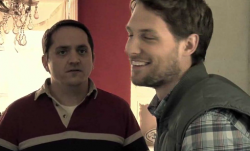 Tubefilter: You said “You can’t ask anyone to work for 25 days for the love of their craft.” Is that your ethical take on the situation, or do you think people will literally not do it?
Tubefilter: You said “You can’t ask anyone to work for 25 days for the love of their craft.” Is that your ethical take on the situation, or do you think people will literally not do it?
JA: I’m sure somebody would work for 25 days just for the experience. But I wouldn’t want to do a series if everyone wasn’t doing their best work, and you can’t get the best people doing their best work for nothing. Not ethically, not practically. You can’t call a full-time job a favor.
For the pilot, many of these people were working one step up from their normal jobs — our DP is generally a gaffer — so there was also an incentive to show their talents. I’d hire many of them again.
Tubefilter: What part of your budget ($25,003, as reported on the blog) would you say went to art direction, locations, production, etc., and what part to salaries?
JA: Beyond our location fee — about $4,000 — the art department totaled $600. Wardrobe was under $1,000. We borrowed our cameras, and used my old MacBook for off-loading, and our editor’s Avid to cut. So by far the biggest expense was paying the crew, which worked out to pretty much California minimum wage.
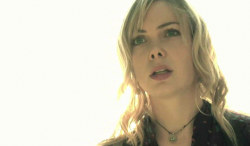 Tubefilter: You say you couldn’t find a major advertiser to sponsor it. Can you tell us about the process you went through in looking for sponsors?
Tubefilter: You say you couldn’t find a major advertiser to sponsor it. Can you tell us about the process you went through in looking for sponsors?
JA: 60Frames was the equivalent of “the studio” on the show, and did all the interfacing with advertisers and other business folks — like NBC/Universal, who signed on to represent the show. 60Frames got a good response, and I got involved with some very preliminary talks with a few possible sponsors, but it never progressed.
Tubefilter: You mention your schedule as an obstacle to doing the show. Let’s say you did get sponsorship: is this something you’d carve out a space for?
JA: I have two movies going into production, and two more to write. So it’s hard to say whether or when a good time could be found.
Tubefilter: You said that you’d moved The Remnants series from the “impossible” to the “unlikely” category. What prompted the shift?
JA: I have no burning desire to forge new ground in distribution. If I could point to another project that was able to pay for itself through non-traditional distribution, I’d be inclined to do it. For now, normal TV makes more economic sense, and I don’t really want to do The Remnants for normal TV.
Tubefilter: The episode is 11 minutes long. Some would argue that’s too long for a web series episode. What do you say to that?
And The Office is half an hour, except when it’s super-sized to 40 minutes. Things fit what they’re supposed to fit. The reason most web shows are short is probably more a function of YouTube’s restrictions than human attention span.
People watch movies on their computers. They watch shows on Hulu. The idea that there’s a perfect length for any show is ridiculous.
But sure, we can cut the show in half. Or in thirds. It doesn’t make it better. It just makes it clumpier.
Tubefilter: Did you always conceive this as a web show? What did you do differently than you would have done if you were doing a movie or a TV show – both in terms of writing and the directing?
JA: I’ve gotten criticism that it’s “not really a web show,” as if there’s an accrediting body, some sort of Internet Academy. But this was always conceived as a web thing — or to be more general, something resembling a TV show but distributed online.
Believe me, I’ve tried to envision the TV or feature version of it, because I could get those set up pretty easily. But there’s a quality I want to it that really works best in its more humble size.
For example, the second episode would involve a long conversation about the bizarre names of NPR reporters, something probably too esoteric for TV or a feature but hilarious for the people who get it. (Also featured: Norman’s paranoia about his role in the group, and Gwen’s unsettling honesty as a result of her 12-step withdrawal.)
Tubefilter: You hear a lot of talk in web narrative circles that independent film is basically dead, that the web has taken its place because you don’t need a distributor. Even a relatively unsuccessful web series will get more views in a single episode than some indie films will get in a lifetime. Since you’ve worked in both forms, can you speak to that?
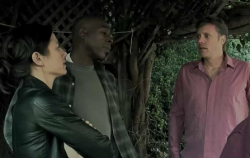 JA: For the really, truly indie indie — the kind of thing that doesn’t even screen at conventional festivals — I think that’s true. But the web isn’t going to replace Sundance or Toronto or Telluride. An indie film is a lot more work and involvement — both for filmmaker and audience — than even a sophisticated web show.
JA: For the really, truly indie indie — the kind of thing that doesn’t even screen at conventional festivals — I think that’s true. But the web isn’t going to replace Sundance or Toronto or Telluride. An indie film is a lot more work and involvement — both for filmmaker and audience — than even a sophisticated web show.
Tubefilter: I love the “regular people doing action movie things” aspect of the show, like the clumsy attempt to jump the gate.
JA: Real people can’t do most of the action you see in movies or TV shows, so I wanted to let that be part of the comedy. At some point, I want to mock the way characters on LOST can magically track people through the jungle.
Tubefilter: You have a reputation for your generosity in sharing information and educating people about screenwriting. You’ve even let readers live vicariously through your own projects on your blog. Not everybody in Hollywood is so eager to share. What is it that makes you so open and willing?
JA: I always think, “If I were growing up in Kansas and curious about screenwriting, what would I want to know?”
Also, I see it as paying back for all the things I’ve learned on the internet.
For more on The Remnants, including some insight into the show’s quirky mythology (hint: it’s actually not about zombies), visit johnaugust.com.

